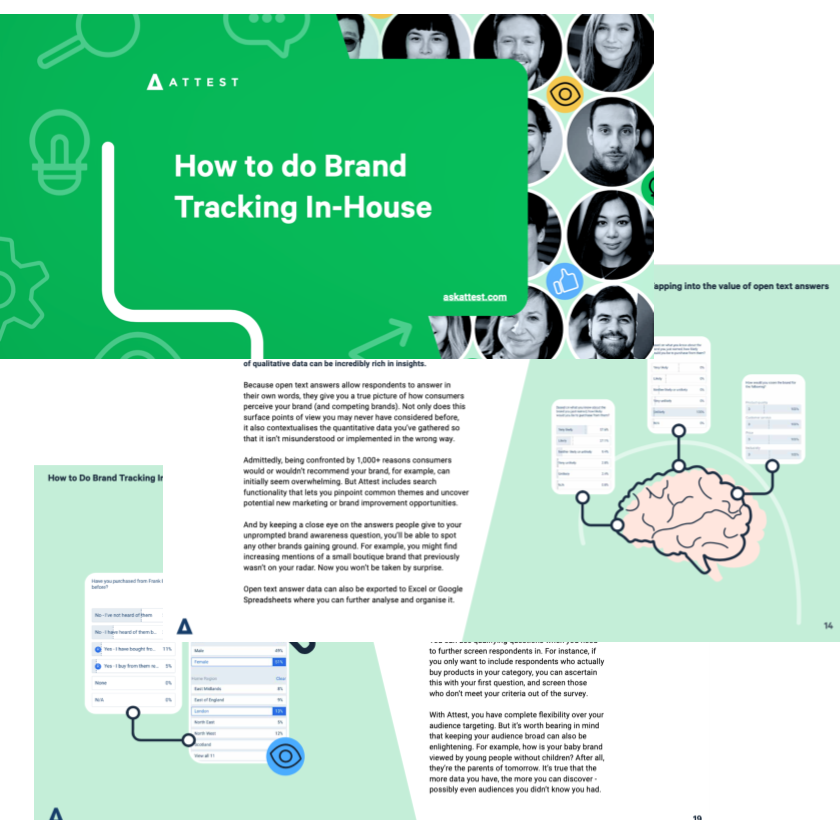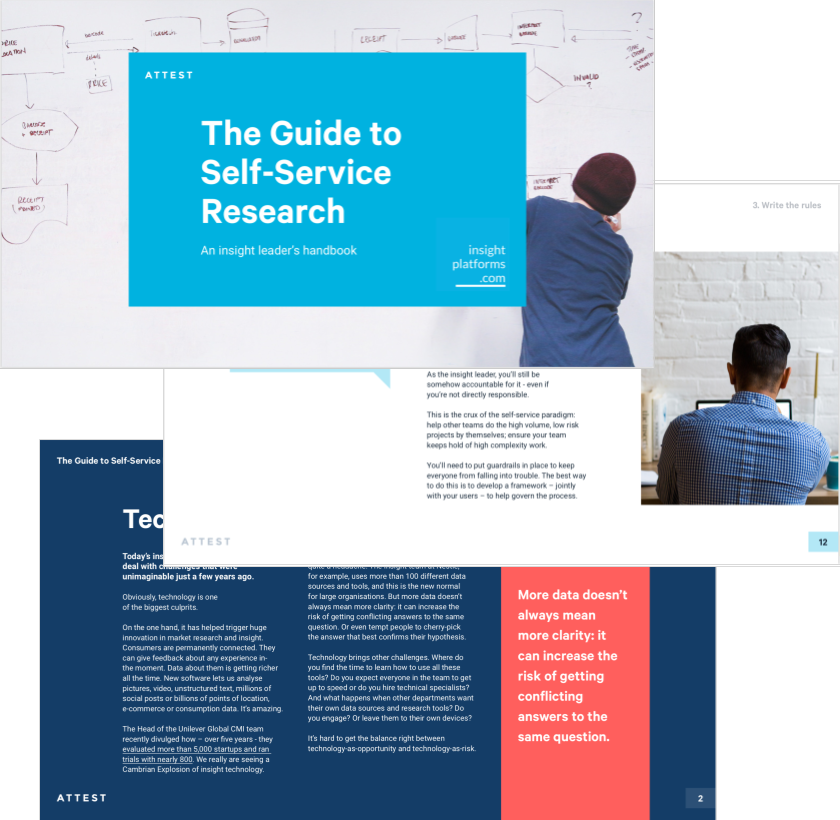19 marketing challenges brands face in 2020

While a New Year brings optimism, change can come with difficulties. We asked marketing professionals to tell us the top marketing challenges they expect to face in 2020.
What marketing challenges will you face in 2020? While a new year brings optimism, change can bring challenges. Advancing technology might mean increased opportunities for brands but also new hoops for them to jump through.
To understand the challenges faced by marketing managers as we go into the new year, we asked 18 marketers to tell us their top concerns. Current marketing issues range from coping with (and making the most of) vast amounts of data, through to the hold that retail giants like Amazon have over the market.
B2C marketers – what challenges are you facing in 2020?
Marketing challenge #1 – declining organic reach
Michael Anderson, Marketing Specialist, GeoJango Maps

“I believe that the biggest marketing challenge in 2020 will be a rapidly decreasing organic reach on social media platforms such as Facebook and Instagram. In recent years Facebook, which owns Instagram, has implemented a decrease in organic reach among these two social channels in an effort to force B2C marketers to spend more money on paid advertising. This has made it difficult to reach potential customers without spending a lot of money and I believe it will only get worse in 2020.”
Marketing challenge #2 – building a recognisable brand name
Michelle Garbera, Sales Director, Powder Mix Direct

“With more and more buyers going directly to Amazon rather than search engines to find products, online B2C visibility is becoming increasingly difficult. It’s therefore important to build a brand name as quickly as possible so that shoppers eventually search for you by name, rather than by product. Offline marketing campaigns, such as print catalogues and postcards, can be effective complements to online campaigns.
Participating in online forums to establish oneself as a subject expert is also a worthwhile tactic. Trust is built slowly, but in the end, it’s extremely valuable. While your competition is focused on trying for viral home runs, you can build a solid foundation by hitting consistent singles. In time, customers will hopefully remember your name, just as they remember Amazon and Zappos. Direct traffic is not only free, but it’s becoming key to online survival.”
Marketing challenge #3 – getting content in front of readers
Kyle Douglas, SEO Manager, Revium

“One of the biggest challenges is in getting a good ROI out of content creation. As any content marketer or producer knows, creating good content takes time. And creating truly brilliant content that will actually gain traction via ranking improvements, social shares and backlinks takes even longer – as well as some hardcore promotion and a little bit of luck.
But the sheer volume of content being produced means that 90%+ of content created will never be consumed in a meaningful way. The core struggle for content marketers and SEO teams will be identifying interesting niche keywords every time they create a piece to ensure it can contribute to the bottom line by getting in front of an audience, rather than get lost in a sea of generic content.”
Marketing challenge #4 – understanding marketing results
Terra Andersen, CEO, Red Card Growth

“Many B2C marketers are failing when it comes to processing and understanding all of the vital data being tossed their way from a growing number of information sources. Data sources such as ad platforms, pixel tracking, conversion measurement systems, payment processors, sales recovery systems, and third-party attribution platforms all seem to be telling a different story as to what is producing the most profound marketing results.
Despite what many assume, even the largest advertising platforms report sales and clicks that are not 100% accurate. Platforms such as ‘Hyros’ are routinely uncovering incorrect data from major ad platforms. Isolating the marketing messages that resonate with consumers requires every piece of the data puzzle to function correctly. Properly tying all data sources together will be an important requirement of B2C marketing in 2020.”
Marketing challenge #5 – Brexit-influenced marketing budgets
Michelle Wright, Owner, Gough Bailey Wright and IPA (The Institute of Practitioners in Advertising) England and Wales Chair

“Businesses in the UK are continuing to take a very cautious approach to marketing budget spending, holding back on projects amongst a sea of uncertainty in this unprecedented political time. The biggest challenges in 2020 will be to continue weathering the storm until we start to see the emergence of anticipated growth, and then guiding brands by the hand as they look to re-enter what will likely be a rapidly competitive market with an even more technologically advanced consumer base.”
Marketing challenge #6 – optimising for voice search
Marc Swann, Search Director, Glass Digital

“The main challenge we’re expecting to come up against is the rise of voice search, which is one of the major marketing trends for 2020. Projections show that at least 50% of all online searches will be conducted through smart assistants by 2020, so we’re looking at how our strategies need to change to account for this. As a result, we’re putting a lot more thought into how target customers might phrase verbal queries, and what information they’re most likely to ask their smart speakers and phones for.
We’ve also noticed that Google has been switching up the layout of its search engine results pages by adding extra features that affect how much attention organic results are likely to get. Over time, the search engine’s organic listings have moved further down the page, as the likes of Featured Snippets and People Also Ask boxes have appeared. And, I think it’s likely we’ll see more of this in 2020 and beyond.
As a result, we’re putting more of a focus on using the most relevant Schema markup and tailoring our content in a way that will hopefully help us to secure more of these features. It’s also more important than ever that companies claim their Google My Business listings, and make the most of them by adding images, asking for reviews, and responding to any questions they receive, as this is another way to appear higher up the SERPs.”
Marketing challenge #7 – bridging the tech gap
Giulia Iannucci, KnowThyBrand

“Keeping up is the biggest challenge, at least for SMEs. Major corporations have so much data they need AI to discern what is valuable from what is not, and how to use it. They talk about ‘sentiment AI’ while small businesses are still struggling with the very basics of personalisation: getting enough data to understand what their buyer personas look like, how to reach out to them and with what unique message.
While for the past few years digitalisation brought a ‘democratisation’ of marketing (nowadays online platforms allow us to achieve marketing standards that 10 years ago were only achievable by major advertising agencies), today the gap is coming back, in the form of technological innovation. It’s one of those ongoing problems in marketing.”
Marketing challenge #8 – complying with GDPR
Olga Mykhoparkina, Chief Marketing Officer, Chanty

“The biggest marketing challenge in the year-to-come is that there are so many great ways to personalise marketing campaigns nowadays, yet our choices for collecting customer data are getting narrower as time goes by.
With GDPR in place, it’s becoming more and more difficult to collect any kind of data that would allow us to create highly personalised content and marketing campaigns. I have a fear that it’s only going to get worse in the future and that marketers will be forced to feel their way around in the dark when it comes to their customers’ profiles.”
Marketing challenge #9 – personalising customer communications
Stuart Cooke, Founder, Levity Digital

“One of the biggest challenges for B2C marketers will be adopting a more conversational style of content and engagement with their audience. We have already seen with the Google BERT update, a concentrated effort from them to better understand user search intent and the language/phrasing they use when making a search. This means that brands will look to communicate with their audience in a more personal and conversational way.
Studies have shown that users are more inclined to engage and convert to personalised messages so this should, and I believe will be a big marketing focus in 2020.”
Marketing challenge #10 – mastering in-house SEO
David Pagotto, Founder & Managing Director, SIXGUN

“One of the things we anticipate taking over in 2020 is Search Engine Optimisation. More and more companies are embracing the basic forms of SEO, like link building, UX checks and reviews, and this will only grow in the new year. The challenges around this are, as always, an education issue – taking care of the client but also giving them the basic tools/knowledge to do some in-house SEO.
This includes prompting ‘happy customers’ for reviews upon completion of service – all of our studies have shown this is the optimum time to get a review on Google, Facebook and other platforms. This comes back to clients educating and utilising their internal resources to help towards SEO.”
Marketing challenge #11 – over-dependence on Amazon
Mayank Batavia, Marketing and Partnerships Manager, QuickEmailVerification

“The biggest challenge B2C marketers will face in 2020 will be developing and maintaining a marketing and supply channel outside of e-commerce aggregators like Amazon. Over-dependence on giants like Amazon could prove counterproductive as brands might begin to turn generic, given the huge number of competing brands and products customers get to view there. Then there’s the risk of Amazon developing its own line of products that directly compete with businesses selling on the platform.
Finally, businesses selling stuff with a strong brand value have found spurious products sometimes being passed off as genuine on e-commerce aggregator platforms like Amazon, despite all the efforts on the part of Amazon. The challenge, however, is particularly difficult because, given the clout and reach of Amazon, businesses will not find it easy to survive without the huge network that Amazon has.”
Marketing challenge #12 – ROI vs brand awareness
Calloway Cook, President, Illuminate Labs

“One challenge we’re facing is determining how much of our marketing budget to spend on brand awareness via social media marketing. Instagram marketing for us has been far less profitable than other paid channels, but it’s important for establishing the trust and authority of a brand. It’s a challenge as a business owner to direct funds into channels which are significantly unprofitable, but it’s part of the overall strategy so it can’t be ignored.”
Marketing challenge #13 – finding time for social media
Brooke Gutierrez, Founder, Dreamy Dancers

“My biggest challenge as a start-up is trying to create daily habits of posting on social media and trying to meet my audience at the platforms they spend the most time on. Additionally, the ever-changing algorithms are exhausting but thankfully there are many resources to help navigate that maze!”
Marketing challenge #14 – political uncertainty
Paige Arnof-Fenn, Founder & CEO, Mavens & Moguls

“I started a global branding and marketing firm 18 years ago and, for my clients, the biggest challenge will be breaking through the noise and distraction of a US election year. Financial markets prefer certainty and small businesses need access to capital to fuel growth so until the election happens and the markets have a better sense of trade issues, taxes, etc. that will be affected, it will be rough to stay focused in the new year.”
Marketing challenge #15 – generating leads
Boni Satani, Digital Marketing Manager, Zestard Technologies

“As technology is advancing quickly, many challenges are increasing for the marketing professional. Even if a marketer has discovered a strategy that works, innovation and competition can cause a move in the standard of their success.
Lead generation is one of the biggest challenges faced by marketers today. You may reach your target audience by various methods but lose the ability to attract future clients. With less lead generation you may lose sales. This loss in the lead generation problem could be due to unproductive methods used to reach and engage your target audience.”
Marketing challenge #16 – making full use of data
Sebastian Janus, Head of Strategy, 10xStudio

“One of the biggest marketing challenges in the 21st century is to fully live up to the promise of data-driven marketing. Companies invested a lot of money and resources in building data warehouses, customer data platforms and data tracking strategies over the past three years. But more often than not, this data is not used to its full extent. It is one thing to gather the data – and completely another thing to actually utilise it.
Too little is done with the customer behaviour data, campaign insights and on page analytics. It is very hard to connect the dots and see the big picture between millions and millions of isolated data points. Every marketer who truly wants to optimise his campaign holistically across different channels and devices needs to invest more time in this area.”
Marketing challenge #17 – rebuilding trust in influencer marketing
William Soulier, CEO, Talent Village

“Over the past few years, many marketers have been burnt in their search for effective influencer solutions due to low quality branded content, inauthentic and unengaged influencers and highly commercially driven companies attempting to capitalise on a huge revenue opportunity. I think we’re all aware of the vociferous headlines and editorial pieces forecasting the demise of influencer marketing in the press and something has to change.
There is now an urgent need to rebuild trust in the industry, and we believe this change starts by working with true talent. These individuals benefit from a particular skill set in a creative field, which in turn gives them the expertise and authority to talk about a specific topic, thus supplying brands with a credible voice in their space.”
Marketing challenge #18 – building trust with consumers
Ryan Patterson, CEO, SeniorAdvice.com

“Our biggest challenge in 2020 is building trust with consumers who are increasingly (and understandably) sceptical of marketing and media. This can be seen in many different aspects of business. Many smaller brands are seeing lower conversion rates on both web and phone marketing. Much of this is due to the abuse of user data which causes many consumers to be sceptical of allowing businesses to contact them.
“In order to combat this, we need to not only maintain a higher level of security and respect for user data and experience, we need to convey that commitment to them directly in our marketing efforts.”
…And marketing challenge #19 comes from us!
Our clients tell us that one of their main marketing problems comes from the inability to get fast consumer insight that’s easy to take action on. This means decisions are often made blind – campaign creative is based on guesswork, messaging is built around imagined personas, and media planning is done by gut instinct. On top of this, it’s tricky to track the results of marketing efforts on brand health, anyway.
Thankfully, 2020 promises to bring as many marketing solutions as it does challenges. The Attest platform – and its new improved interface – is just one of them. You can draft surveys, choose audiences from our pool of 100 million consumers across 80 markets, and analyse results all in one end-to-end platform. With results available in a matter of hours, you can always make decisions quickly and confidently.
To learn more, download the insight leader’s guide to self-service research and face your marketing challenges without fear in 2020!
Tell us what you think of this article by leaving a comment on LinkedIn.
Or share it on:


